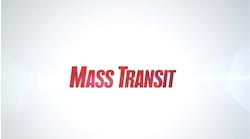NC: How the feds and Volkswagen are helping to bring electric buses to Chapel Hill
By Richard Stradling
Source The News & Observer (Raleigh, N.C.) (TNS)
Aug. 11--CHAPEL HILL -- The town's effort to convert its fleet of diesel buses to electric ones got a boost this week from the federal government.
Chapel Hill Transit was awarded a $5.6 million grant to buy electric buses and the equipment needed to keep them charged. That should be enough to buy four 40-foot and two 60-foot electric buses, said Brian Litchfield, the agency's director.
The grant from the Federal Transit Administration was announced Monday by U.S. Rep. David Price, who lives in Chapel Hill and heads the House appropriations subcommittee for transportation, housing and urban development.
"Chapel Hill Transit is a national leader when it comes to affordable, dependable public transportation that ensures people can conveniently connect to jobs, health care, and educational opportunities," Price said in a written statement. "This funding will ensure the bus fleet remains in top shape, while reducing carbon emissions and air pollution."
Chapel Hill Transit, which provides fare-free bus service, already has three electric buses on order, thanks in part to an earlier federal grant. The coronavirus outbreak has slowed production, Litchfield said, and the town now expects to receive them next May.
The town will also receive an electric bus through the state's share of the U.S. Environmental Protection Agency's settlement with Volkswagen for cheating on vehicle emissions. North Carolina expects to receive $92 million from the settlement, and Gov. Roy Cooper announced late last month that $30 million would be used to replace old, polluting diesel school buses and other vehicles, buy more than a dozen electric buses and install 33 electric vehicle charging stations across the state.
Chapel Hill Transit's bus and charging equipment will use $485,000 of the settlement, according to the state Department of Environmental Quality, which is managing the money.
Altogether, Chapel Hill now plans to acquire 10 electric buses. The agency has 93 diesel buses and will retire some as it receives the electric ones. The electric buses are built to order, and Litchfield says it generally takes 18 to 24 months for one to arrive.
RDU Airport had first public electric buses in the Triangle
Transit agencies across the Triangle are slowly bringing electric buses into their fleets of diesels. GoTriangle put its first two into service last winter, and GoRaleigh has five on order. GoDurham also received money through the Volkswagen settlement to help it buy its first three electric buses.
The buses and the charging equipment cost more than conventional diesels, but in addition to being cleaner and quieter they're also cheaper to maintain and operate.
The first public electric buses in the Triangle began shuttling passengers between the terminals and parking lots at Raleigh-Durham International Airport in the spring of 2019. RDU purchased four of the buses using a grant from the Federal Aviation Administration.
Last winter, RDU decided to buy four more electric buses, this time without any government help. RDU officials are happy with how the new buses run and found the lower operation and maintenance costs made them a good choice financially even without a subsidy.
___
(c)2020 The News & Observer (Raleigh, N.C.)
Visit The News & Observer (Raleigh, N.C.) at www.newsobserver.com
Distributed by Tribune Content Agency, LLC.

